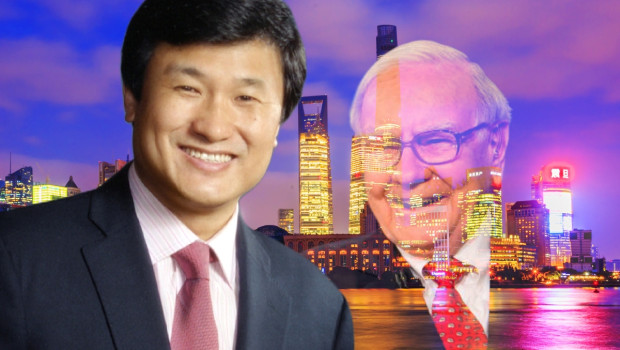Unlocking the Investment Wisdom of Li Lu: The Chinese Warren Buffett

In the world of finance, certain names shine brightly, while others remain shrouded in relative obscurity. Li Lu, a name perhaps unfamiliar to many in Spain, is a celebrated figure in the world of investment, often referred to as the 'Chinese Warren Buffett.' This article will delve into the remarkable journey and investment philosophy of Li Lu.
From Tiananmen Square to Wall Street
Li Lu was born in China in 1966 and made headlines in 1989 as one of the student leaders during the protests that tragically culminated in the Tiananmen Square massacre. Following the Chinese government's brutal crackdown, he was forced to emigrate to the United States and pursued his education at Columbia University, completing it in 1996.
During his time at university, Li Lu attended a lecture by Warren Buffett. This encounter would prove to be a pivotal moment, as it inspired him to embark on a career in finance, closely adhering to Buffett's value investment philosophy.
Himalaya Capital Management: A Beacon of Success
After graduating, Li Lu founded Himalaya Capital Management in 1997, an investment firm that would go on to establish his reputation as one of the preeminent investors of the 21st century. The firm's mission statement reflects its commitment to the principles of Benjamin Graham, Warren Buffett, and Charles Munger, with a special focus on publicly traded Asian companies, notably in China.
Their goal is to achieve superior returns by becoming long-term stakeholders in high-quality companies characterized by substantial economic moats, substantial growth potential, and trustworthy leadership. Some of their investments date back two decades, a testament to their commitment to the long game.
A Humble Decline: The Berkshire Hathaway Offer
Li Lu was long considered a frontrunner to succeed Warren Buffett as the head of Berkshire Hathaway, despite his close friendship with Charlie Munger, Buffett's longtime partner. Surprisingly, Li Lu chose to exclude himself from the succession process, opting for a different path.
Concentration, Not Diversification
One of Li Lu's core investment principles is the creation of a highly concentrated asset portfolio, focused on a select few companies. This decision stems from meticulous analyses of a company's business prospects and its management team, as these investments are intended to span multiple years, if not decades.
For instance, in the United States, Li Lu's portfolio comprises just five stocks. His largest bet on Wall Street is Alphabet, Google's parent company, with a hefty 37% weighting and a market value of $672 million. Following closely is Bank of America, representing nearly 29% of his portfolio, with a valuation of $518 million.
In the third position, Li Lu invests in Berkshire Hathaway, Warren Buffett and Charlie Munger's investment vehicle, with a 17% allocation and a market value of $306 million. Apple takes fourth place, accounting for over 8% of his portfolio and valued at $147 million. Finally, rounding out the top five is East West Bancorp, another bank, with an 8% allocation and a market value of $146 million.
Conclusion
Li Lu, often likened to the legendary Warren Buffett, has etched his own indelible mark in the world of finance. His journey from Tiananmen Square to Wall Street, his founding of Himalaya Capital Management, and his unwavering commitment to a focused investment strategy are testaments to his prowess as an investor.
In a world where diversification often takes precedence, Li Lu's concentrated approach stands out as a compelling alternative. His success story serves as an inspiration for those who believe in the power of conviction and in-depth analysis in the realm of investments.